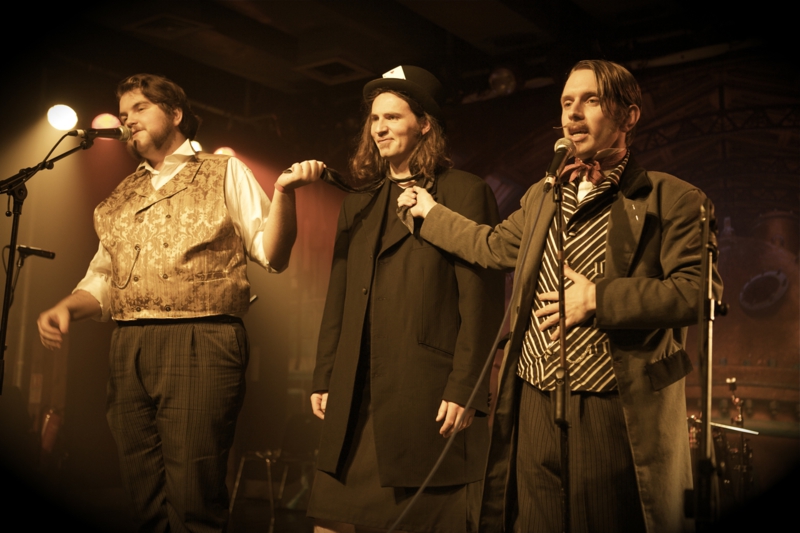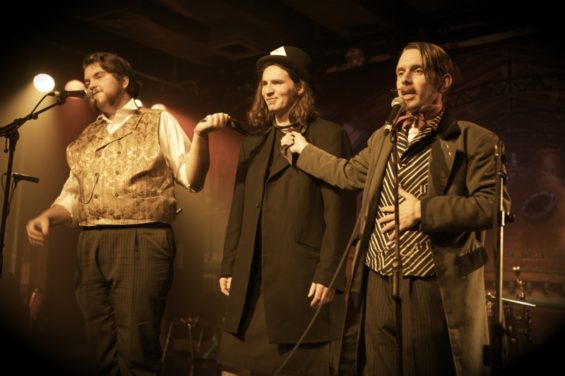Audience participation. A phrase with the power to terrify performer and punter alike. But, love it or hate it, magic shows are often abundant with audience “volunteers”. Our shows are no exception, but the question is why do we do it?
On a base level we, as the magicians we are, need it. This is not to say you cannot have a magic show or cabaret act which does not involve the audience in anything other than a passive observation role. Manipulation and grand illusion are often performed as you would a play with no audience involvement expected, or indeed wanted. But the magic we do, more often than not, requires someone to help.
Perhaps we need someone to independently verify that an empty box is just that. Maybe we need to borrow someone’s ring only to teleport it across the stage, or it might even be we need a person’s mind to read. If no one checks the box then perhaps it is full of trap doors, we might have two identical rings, and reading our own minds is just, well, speaking. Without the input from a credibly independent member of the public these minor miracles are reduced to nothing but rather elaborate and confusing miniature plays. Our choice of performance necessitates audience involvement, so how do we go about getting our volunteers?
First off, “volunteer” is a bit of a misnomer. Often the on-stage involvement of an audience member is, as Tricity Vogue says, “all about playful humiliation spiced with flirtation” and many people just don’t want to be the subject of the humiliation, as playful, well meaning and controlled as it may be. We have no intention of humiliating anyone, let alone flirting with them (being Victorian gentlemen, after all), so we don’t give people the chance to say no. Should we need the help of someone they are quickly conscripted into the Morgan & West family.
What about other performers who conscript rather than invite participation? We first saw Sam Simmons perform at the Edinburgh Fringe 2011 and in his show he made merciless use of “volunteers” on stage for the amusement of the audience as a whole. We chatted to him about this show whilst at the Adelaide Fringe.
“I hate audience participation in comedy, it can be really lazy. Whilst some people do it exceptionally well, for example The Boy With Tape On His Face. All too often in comedy it is a sign of lazy writing. In Meanwhile [Sam’s 2011 Fosters Award nominated show] I wanted all of the audience participation to be as extreme and as uncomfortable as I could make it. This was essentially as a reaction to lots of the audience participation I see at other shows.’
So, a person is now involved in our trick, either on stage or sat comfortably in the audience. Importantly they are just that, a person. In fact, let us call them Leslie. It might be tempting to think of Leslie as a living prop to be moved around or simply an independent adjudicator, but Leslie is still a person with feelings, wants and wishes. Leslie may be nervous, excited, cautious or even indifferent to the whole situation and now we have chosen them to help us entertain.
It is rather an odd situation I’ll grant you. Leslie has (hopefully) bought a ticket allowing them to watch a show for their entertainment. Now Leslie is part of that show with little say in the matter. Did Leslie agree to this? Essentially, yes: if you go to a show (especially a magic show) and are willing for other members of the audience to be a part of it then you should be trusting enough to join in yourself too. So what do we, as performers, want out of this unwritten, unspoken agreement of aid?
First and foremost, we want the show to go well. Secondly, we want Leslie to have a jolly good time on stage with us. Now that is not to say that we will sacrifice the dignity of Leslie in exchange for a good trick but the trick does come first; after all, that is the show. So we treat Leslie the same as we treat any other member of our audience: we are polite, respectful and have a smile on our faces. We want Leslie to want things to go well so that everyone gets the most out of it.
That’s quite enough of the hypothetical Leslie, what about some other shows who ask for more than passive appreciation from their audience? The Boy with Tape on his Face seems to rely on willing members of his audience to make his show. We had a brief chat with The Boy (aka Sam Wills) about how he feels about audience participation.
“I can’t live without it. I want my volunteers to be as comfortable as possible on stage and part of the way I do this is by giving them as little as possible to do. Simple things that are easy to grasp and almost impossible to fail at. Even when I make a bit of fun of them there is always a payoff for them at the end. In my first show, I got someone up and sat them down again and again but by the end made them the star of the show and they had the most fun possible.”
Audience participation scares people, performers and audiences alike, because it is the unknown. Stage fright as a phenomenon exists because people are afraid of embarrassment in such a public forum. It is easy to forget as a professional stage performer that Leslie the accountant is not as comfortable as we are, and it is easy for an audience member to forget that the person inviting you to the stage knows what they are doing. The important thing to remember is that everyone wants the show to go well, and for that to happen you might just need to be a part of it.
When not travelling up and down the country Morgan & West can be found hosting their monthly magic night Magical Menagerie in Oxford. The next one is April 2nd with Andi Gladwin and Chris Cox.
Photo credit: Lisa Thomson




Recent Comments